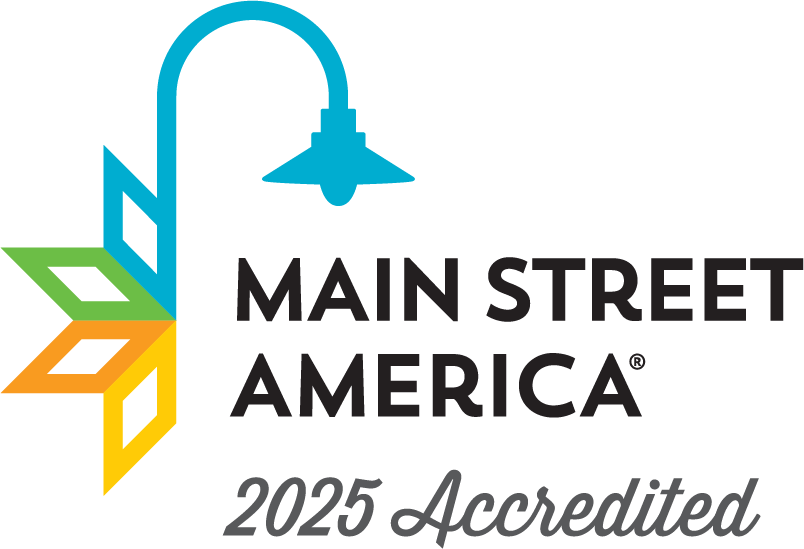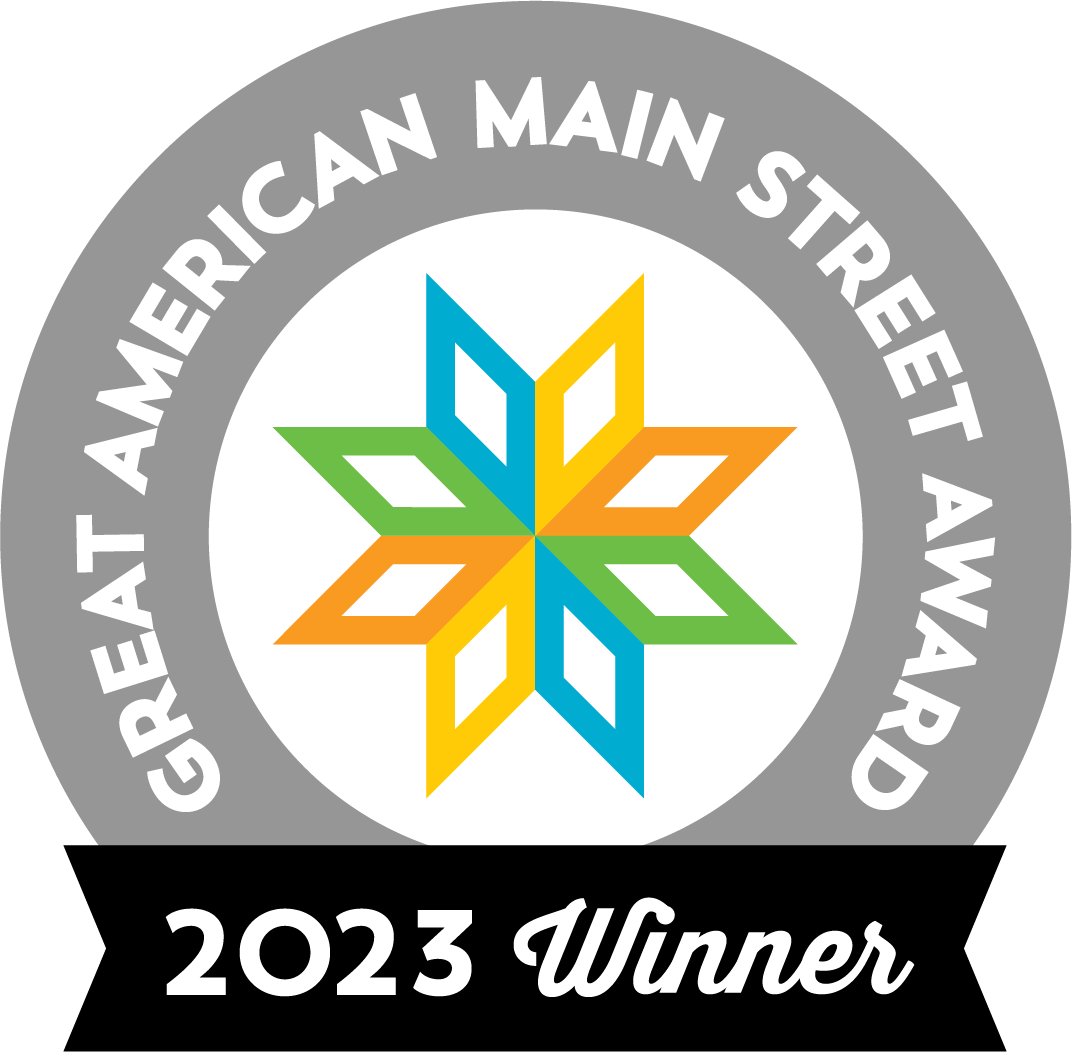About Us
The Florence Downtown Development Corp. (FDDC) is a 501(c)3 non-profit organization established by the City of Florence to foster revitalization in Downtown Florence, South Carolina. FDDC is a partnership with the City, led by an independent 11-member Board of Directors elected to manage the corporation’s activities, affairs, property, and associated assets. The board is not part of the City of Florence’s Boards and Commissions. FDDC staff is comprised of two City of Florence employees, the Development Manager and the Development Coordinator, enlisted to provide day-to-day operations of the organization in addition to their City duties.
FDDC is a member of National Main Street and its state coordinating program, Main Street South Carolina, which directly guide preservation-based economic development and community building. In 2021, Downtown Florence earned National Main Street Accreditation and was named a 2022 Great American Main Street Award semi-finalist. In 2023, Downtown Florence earned the Great American Main Street Award—only the second South Carolina downtown to be recognized at this level of achievement.
As a Main Street America™ Accredited program, Downtown Florence is a recognized leading program among the national network of more than 1,200 neighborhoods and communities who share both a commitment to creating high-quality places and to building stronger communities through preservation-based economic development. All Main Street America™ Accredited programs meet a set of National Accreditation Standards of Performance as outlined by Main Street America™.
What We Do
The mission of the Florence Downtown Development Corp. is to revitalize and restore civic pride in Downtown Florence, SC through implementation of projects and initiatives guided by a downtown master plan strategy.
FDDC’s purpose is to work in partnership with the City of Florence Development Office to facilitate and promote the redevelopment and revitalization of the Downtown Florence Redevelopment District as the civic, cultural, and commercial center of the City of Florence and the Pee Dee Region of South Carolina.
Following the National Main Street Approach™, FDDC uses community-based revitalization initiatives combined with a practical and adaptable framework for downtown transformation that is easily tailored to fit our community's unique needs. The Main Street Approach uses four key points:
- Economic Vitality focuses on capital, incentives, and other economic and financial tools to assist new and existing businesses, catalyze property development and reinvestment, and create a supportive environment for entrepreneurs and innovators that drive local economies.
- Organization involves creating a strong foundation for sustainable revitalization efforts including cultivating partnerships, community involvement, and resources for the district.
- Design supports a community’s transformation by enhancing the physical and visual assets that make the commercial district unique.
- Promotion positions the downtown or commercial district as the center of the community and hub of economic activity, while creating a positive image that showcases a community’s unique characteristics.
Using all four points, the Main Street Approach calls for transformation strategies, which articulate a laser-focused and deliberate path to revitalizing and strengthening the downtown commercial district.
Downtown Florence History
The Florence Downtown Historic District is a collection of 51 commercial buildings, of which 38 contribute to the historical character of the area. This area contains the majority of the late nineteenth to early twentieth century architecture remaining in the City of Florence. The Historic District is significant for its association with Florence’s commercial development since the City’s founding in 1871. The district reflects the City of Florence’s growth as the nucleus of a successful regional railroad network and as a thriving commercial center for the entire Pee Dee Region of South Carolina.
When movement away from urban centers took place and focus on shopping malls was spurred in the 1960s, Downtown Florence began to decline. In 1976, a Downtown Renewal project attempted to create a covered concrete promenade affixed to historic storefronts to attract shoppers once again, but the project was a failure, and was reversed in the 1980s.
During the decline that followed, the downtown area was described by some as a “drunk too far gone to be saved,” and many considered the area too risky for private investment. Three failed attempts to kick off a revitalization effort led to a wake-up call after a perceived lack of amenities and vibrancy directly contributed to the City’s failure to recruit two large industrial prospects and two major healthcare facilities struggled to recruit personnel and physicians.
In 2011, a Downtown Master Plan with a five-year implementation timeline was adopted. City leaders and stakeholders drew on information from community focus groups, interviews, and a citizen’s delegation to help inform the plan. Other planning efforts were expanded to include housing, public spaces, employment, mobility, infrastructure, and economic development. Goals addressed socioeconomic, physical, and cultural aspects of revitalization using the Main Street Approach™.
In 2013, a group of local investors took on the revitalization of 126 W. Evans Street, now Hotel Florence, which became the first major private catalyst project that sparked a sense of pride and inspired others to follow suit. Other small win landmark projects acted as catalyzing agents, spurring a change in public perception and inviting additional investments. Since that first project, Downtown Florence has seen over $300 million in public and private investment. Downtown Florence has become synonymous with growth and is the Pee Dee’s bold and vibrant place where there’s always something going on.
Who We Are
Ken Jackson, Board Chairman
PLC Commercial
1st Term Expires 12/31/2026
Lesli McGee, Vice Chairman
McLeod Hospital
1st Term Expires 12/31/2027
Marvin James, Treasurer
ChocoBella & Genesis Landscapes
1st Term Expires 12/31/2026
Dr. Fred Carter, Board Member
Francis Marion University
2nd Term Expires 12/31/2026
Scott Collins, Board Member
Collins & Almers Architecture
1st Term Expires 12/31/2027
Ed Love, Board Member
King & Love Attorneys at Law
2nd Term Expires 12/31/2026
Dr. Calvin Robinson, Board Member
Trinity Baptist Church
2nd Term Expires 12/31/2027
Tim Norwood, Board Member
Synergi Partners and Victors
2nd Term Expires 12/31/2026
Merrette Dowdell, Board Member
MUSC Health
1st Term Expires 12/31/2028
Scotty Davis, Board Member
City Manager, City of Florence
Mayor Lethonia Barnes, Board Member
Mayor, City of Florence
Dr. Jermaine Ford, Ex-Officio Board Member
Florence-Darlington Technical College
Mike Miller, Ex-Officio Board Member
Greater Florence Chamber of Commerce


